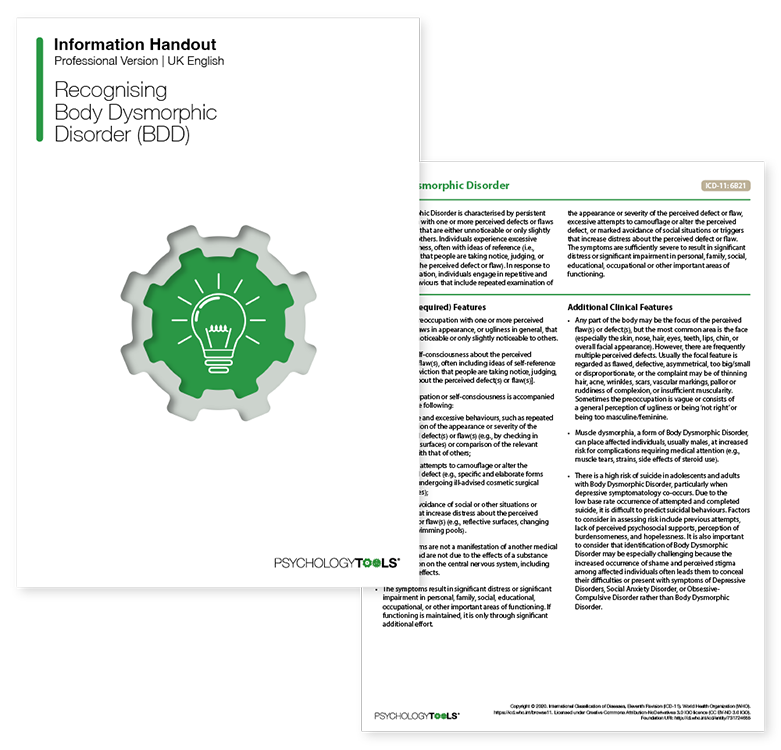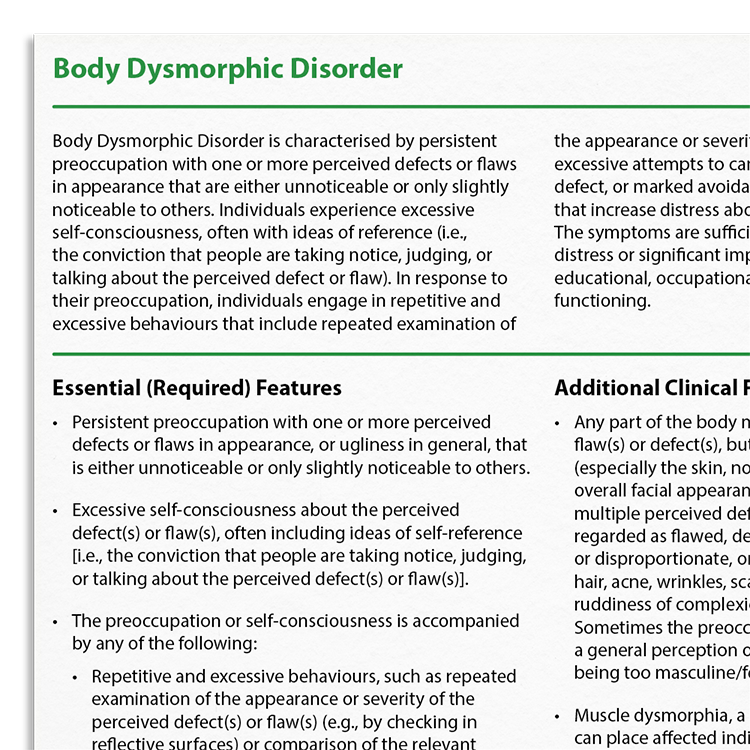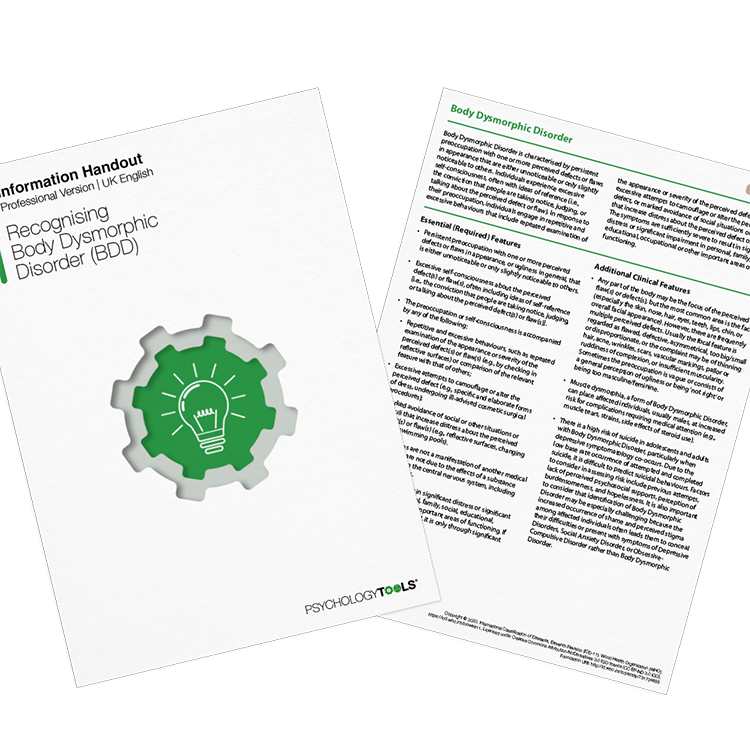Professional version
Offers theory, guidance, and prompts for mental health professionals. Downloads are in Fillable PDF format where appropriate.
Recognizing Body Dysmorphic Disorder (BDD) outlines the ICD-11 diagnostic features to support therapists in identifying BDD in their clients.

Offers theory, guidance, and prompts for mental health professionals. Downloads are in Fillable PDF format where appropriate.
To use this feature you must be signed in to an active account on the Advanced or Complete plans.

Body dysmorphic disorder (BDD) is characterized by the persistent preoccupation with defects or flaws in one’s appearance that are either unnoticeable or only slightly noticeable to others. This preoccupation results in symptoms of significant distress, leading to experiences of excessive self-consciousness, often with ideas of reference (e.g., worries of judgment), and a significant impairment on functioning.
Recognizing Body Dysmorphic Disorder presents the ICD-11 diagnostic criteria to help clinicians in identifying Body Dysmorphic Disorder in clients.
Body dysmorphic disorder (BDD) is a common mental health difficulty. This resource:
Designed for mental health professionals working with individuals affected by bdd.
Review the key features of body dysmorphic disorder (BDD).
Identify symptoms of BDD in clients.
Discuss whether clients identify with BDD.
Psychiatric diagnostic frameworks serve multiple purposes. Classification of mental disorders enables clinicians and researchers to speak a common language when describing patterns of experience and behavior, guide appropriate treatment interventions, and act as a coding system for insurance purposes. The success of these classification frameworks has varied across diagnoses but in the best cases has led to improved understanding and treatment of conditions, as well as helping many service users who find such classification valuable (Perkins et al, 2018).
Diagnostic frameworks are not without controversy. They have been criticized on grounds of reliability, validity, and distortions due to commercial interests (Zigler & Phillips, 1961; Frances & Widiger, 2012; Bell, 2017). Perhaps most importantly there are instances where they have had, and continue to have, extremely negative effects upon service users (Perkins et al, 2018). Diagnosis is not the only way of understanding people and their experiences. Many clinicians and their clients find that attending to personal stories and narratives is a helpful approach, and psychological formulation is one technique for bringing together information about what has happened to an individual and the sense that they have made of it (British Psychological Society, 2018).
Notwithstanding the above caveats, the ‘Recognizing...’ series from Psychology Tools is designed to aid clinicians in the recognition and understanding of common mental health problems.

Just enter your name and email address, and we'll send you Recognizing Body Dysmorphic Disorder (English US) straight to your inbox. You'll also receive occasional product update emails wth evidence-based tools, clinical resources, and the latest psychological research.
Working...
This site uses strictly necessary cookies to function. We do not use cookies for analytics, marketing, or tracking purposes. By clicking “OK”, you agree to the use of these essential cookies. Read our Cookie Policy